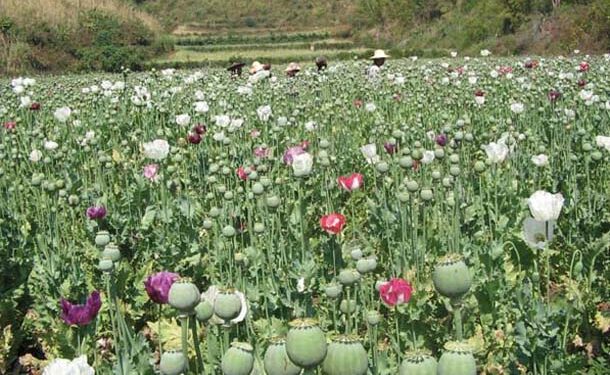
YANGON, June 26, 2024 (BSS/AFP) - Conflict-ravaged Myanmar is "facing challenges" in stemming opium poppy cultivation, the junta said Wednesday, months after the UN warned the country had become the world's biggest producer of the narcotic.
Myanmar's legal economy has been gutted by conflict and instability since the military seized power in 2021 and sparked a widespread armed uprising.
The country was "severely facing challenges related to opium poppy cultivation", the junta's home affairs minister Lieutenant General Yar Pyae said in a statement carried by the state-owned Global New Light of Myanmar newspaper.
He said there had been a "slight increase" in illegal cultivation of opium poppy -- essential for producing heroin -- in 2023 compared to the previous year.
According to the United Nations Office for Drugs and Crime (UNODC), Myanmar produced an estimated 1,080 metric tonnes of opium in 2023, up from 790 the year before.
That harvest made Myanmar the world's biggest producer of opium poppy in 2023 after production in Afghanistan slumped to around 330 tonnes following the Taliban government's ban on poppy cultivation.
Yar Pyae accused some of Myanmar's ethnic armed groups of manufacturing synthetic drugs using precursor chemicals imported from Myanmar's neighbours.
The Southeast Asian nation's borderlands are home to a plethora of ethnic armed groups, many of which have fought the military for control of local resources and over the drug trade.
Myanmar authorities said on Wednesday they had torched $349 million worth of drugs to mark World Drug Day.
The total estimated value of Myanmar's "opiate economy" rose to between $1 billion and $2.4 billion, the equivalent of 1.7 to 4.1 percent of the country's 2022 GDP, the UNODC said.
Analysts say the military, which ousted an elected government and seized power in 2021, is not serious about ending the multi-billion dollar trade.